In her article in The New Statesman, “I Hate Strong Female Characters,” Sophia McDougall wrote, “Sherlock Holmes gets to be brilliant, solitary, abrasive, Bohemian, whimsical, brave, sad, manipulative, neurotic, vain, untidy, fastidious, artistic, courteous, rude, a polymath genius. Female characters get to be Strong.” And, it’s true. A “strong female character” has to stand up represent and “strong” and “female” before she can be a character.
But, beyond being strong—to the exclusion of all else—there is a sense that a female character has to be good. Han Solo got to be a rogue, a smuggler, greedy, and uninterested in the fate of universe. He got to be the kind of man who shoots a business partner when a deal goes wrong—regardless of who shot first—and still end the movie with a medal on his chest and the princess on his arm. In Jim Butcher popular Dresden Files series, Harry Dresden gets to be destructive to everyone and everything around him, prone to anger, more than a little bit sexist, and even cause the death of people close to him and there is never a doubt in the reader’s mind that he is the hero of the book.
I love Han Solo and Harry Dresden; they’re interesting, troubled, exciting characters with both flaws and virtues. The problem isn’t with them. The problem is: How often have you seen a bad girl get to be the hero? I don’t mean a bad girl who inevitably reforms, becomes a model of virtue, and then takes center stage in the story. I’m talking about a woman who has a bad side and does the wrong things—and not for the right reasons—and is still the book’s hero, if not the world’s.
If, like me, you’re looking for anti-heroines and flawed female protagonists and frequently coming up empty, I’ve made a list of three of my favorites. These are the women who shoot first.
Nyxnissa so Dasheem from the Bel Dame Apocrypha series by Kameron Hurley
Nyxnissa—Nyx to pretty much everyone—used to be a Bel Dame, a government-sanctioned assassin and bounty hunter. Her job was to hunt down conscripted soldiers escaped from the front of a bloody, interminable religious war and cut off their heads. She isn’t a bel dame anymore by the time the first book, God’s War, starts, but she’s still cutting off heads for money. Nyx has seen hell at the front. She’s gotten hard and unforgiving and she isn’t looking for forgiveness. She’s trying to survive.
The world Nyx comes from, Umayma, is a planet of harsh and unforgiving deserts and even more unforgiving jungles. The majority of non-human life is insect and insects power their technology. All of the men have been sent off to fight and the only people left in the cities are the toughest women. In the very first line of the first book, Nyx sells her womb for cash. At no point does Hurley treat this scene sentimentally as Nyx cutting off ties to her womanhood nor does it render Nyx sexless. Her sexuality remains intact and at the forefront of her many bad decisions. And womanhood isn’t considered gentle or saintly in The Bel Dame Apocrypha. Nyx’s willingness to survive, even if it means cutting out her womb, is part of what makes her a woman of Umayma.
Over the course of the three book series—God’s War, Infidel, and Rapture—Nyx fights for and against corrupt regimes, she risks everything for the people she cares about, and also sacrifices the people who trust her to save herself. She shoots. She swears. She fights dirty in the ring. She goes a lot farther than Han Solo would ever have dreamed of. She shoots first, second, and third and then cuts the guy’s head off for good measure.
Even with all of that, Nyx is definitely the protagonist of The Bel Dame Apocrypha. Her decisions shape the world and Hurley writes the character in a way that lets the reader sympathize with her and understand her, even if we aren’t always comfortable with what Nyx does.
Onyesunwu from Who Fears Death by Nnedi Okorafor
Onyesunwu (Who Fears Death in Igbo) also comes from an unforgiving desert torn apart by a conflict—in her case, a racial one—and she grows up a child born of both the Nuru and Okeke races. Then, she develops magical powers and fights to be tutored in their use. While women in this setting do wield some power, the men definitely have the upper hand and magic is usually reserved for them. She triumphs, learns magic, and sets off to confront her evil father with a ragtag group of friends in tow. The setting isn’t precisely a fantasy setting. The people of Onyesunwu’s world use modern technology and even technology from beyond the current day, but don’t seem to understand it.
Onyesunwu learns her own power with the help of her friends and a young interracial man, Mwita, who becomes her lover. Mwita is her primary support over the course of the book and, in many ways, a male version of her charcater. Onyesunwu is characterized by her independence, her fierceness, and her unwillingness to bow or break before the things she sees as wrong. But, Okorafor doesn’t have those traits play out by making Onyesunwu a pure-hearted crusader.
Onyesunwu is prone to anger and violence. She’s intolerant of other people’s frailties and unwilling to forgive or forget. At one point in the book, she leaves an entire village blind. She fights with her friends and even drives two of them away from her. Despite this, Onyesunwu is definitely the hero of the book. Where Nyxnissa just manages to survive, Onyesunwu saves the world.
Siobhan Quinn from Blood Oranges by Caitlin R. Kiernan (writing as Kathleen Tierney)
Caitlin R. Kiernan started writing Siobhan Quinn’s story on her livejournal as a joke on all of those vampire romances and werewolf romances. Her fans liked the stories enough that they eventually saw print as Blood Oranges, Red Delicious, and the recently published Cherry Bomb. Siobhan Quinn starts out as nobody special, just someone who does odd jobs for a small-time crime boss. Then, through a series of misadventures becomes simultaneously a vampire and a werewolf.
This doesn’t turn her into a romantic heroine or a creature of the night. It doesn’t even make her a particularly reliable narrator. She swears. She kills people for money, or blood, or because she’s not very good at being a werewolf. She’s foul mouthed, violent, and willing to sell others out to protect herself. But, no matter what wildly inappropriate thing she’s done, she is always the hero of her own story. She manages to survive in a world built for vampire romances without relying on anyone but herself. She may be foul-mouthed and uneducated, but she’s not stupid. She solves the mystery and saves the day.
Jessica Sirkin is a speculative fiction writer and technology journalist living in Boston with her pet rabbit, Lenore. Her short story, “The House in Winter” was a runner-up for the “Apex Magazine Best Story of the Year 2014” and was made into a podcast. She spends of her time sitting in front of a computer and should probably get out more. Follow her on twitter @jessicasirkin or find her onLinkedIn.
—Please make note of The Mary Sue’s general comment policy.—
Do you follow The Mary Sue on Twitter, Facebook, Tumblr, Pinterest, & Google +?



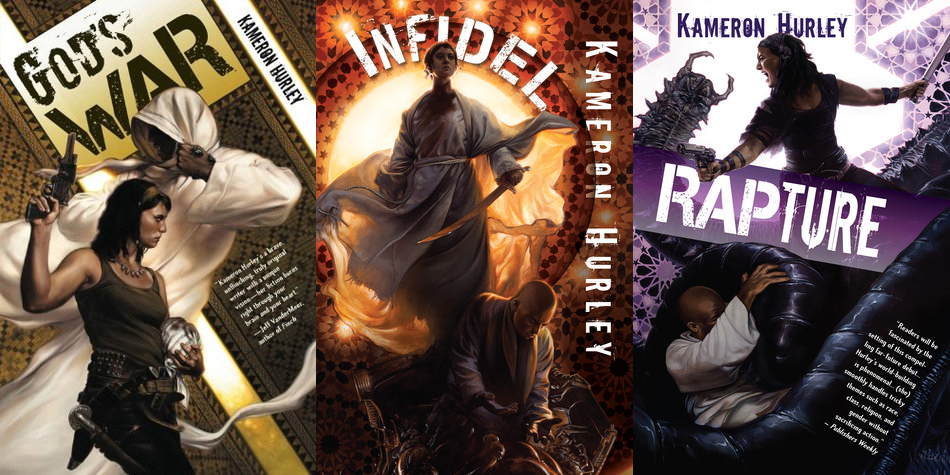

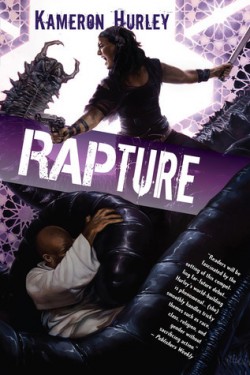
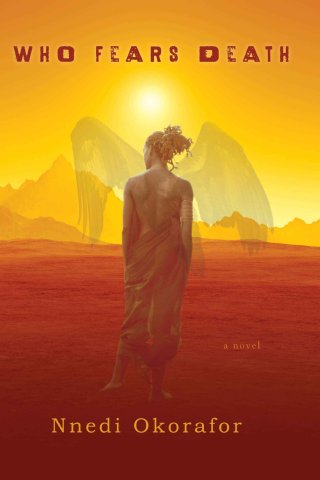
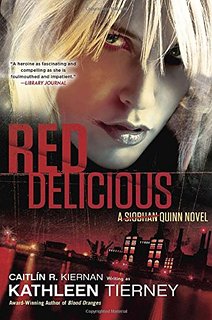
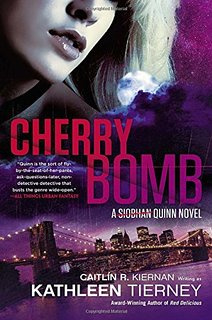





Published: Jul 30, 2015 02:32 pm